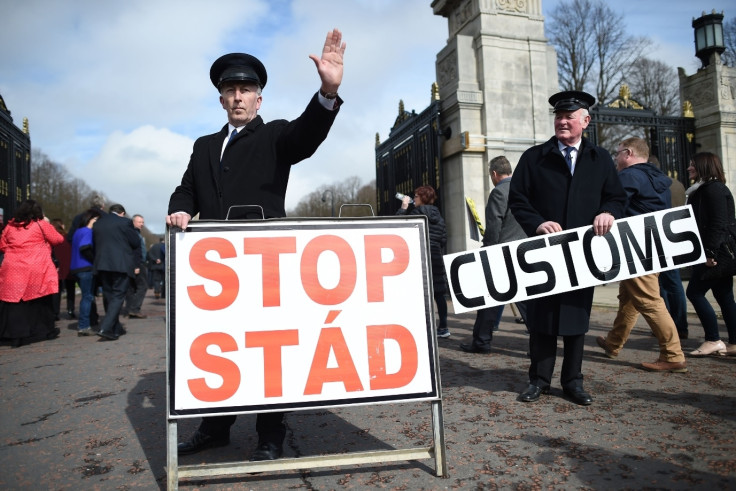Ireland wants a sea border with the UK after Brexit – here is what that means
Proposal has been denounced by Northern Ireland's Democratic Unionist Party.

The row over the UK's future relationship with Ireland has intensified, with the Irish government calling for customs and immigration checks to be located at ports and airports. The move would effectively create a new border between the UK and Ireland in the Irish Sea.
The controversial proposal apparently came after the British government unveiled plans to introduce a land border monitored by surveillance cameras and other equipment in a bid to maintain a so called "soft border" so that free trade and the Common Travel Area could continue between Northern Ireland and the Republic to the south.
But Leo Varadkar, Ireland's new Taoiseach, is apparently unconvinced about the proposal. He told Prime Minister Theresa May that her plan was "doomed and would jeopardise the peace process", The Times reported on Friday 28 July.
The issue is further complicated because of the "confidence and supply" agreement between Northern Ireland's Democratic Unionist Party (DUP) and the Conservatives.
The deal is designed so that DUP MPs vote alongside the Tories on major pieces of draft legislation in the House of Commons.
DUP MP Sir Jeffrey Donaldson told the BBC's Radio 4 Today programme that there would be "no way" that his party would back Varadkar's plan, branding the proposal as "absurd" and "unconstitutional".
"Pragmatically that is just not going to happen. If you look at Northern Ireland, for example, out of the port of Belfast 73% of the goods that come in and out of the port of Belfast which is by far our busiest port go to Great Britain," he said.
The UK government has maintained that it does not want to see a return of a "hard border" between Northern Ireland and the Republic, with nothing less than the peace process at stake.
The problem for both parties is that 310-mile long frontier between the North and the Republic of Ireland will effectively be a border between the UK and the EU when Britain splits from the bloc in 2019. The issue is one of the three main areas of discussion during the first phase of talks between Brexit Secretary David Davis and the EU's chief negotiator Michel Barnier.
"Brexit changes the external borders of the EU," Barnier told the Irish parliament in May. "I will work with you to avoid a hard border. The UK's departure from the EU will have consequences. We have a duty to speak the truth. Customs controls are part of EU border management.
"They protect the single market. They protect our food safety and our standards. But I already said many times: nothing in this negotiation should put peace at risk. This was recognised by the 27 Heads of State and government two weeks ago. They were very clear that the Good Friday Agreement must be respected in all its dimensions."
© Copyright IBTimes 2024. All rights reserved.






